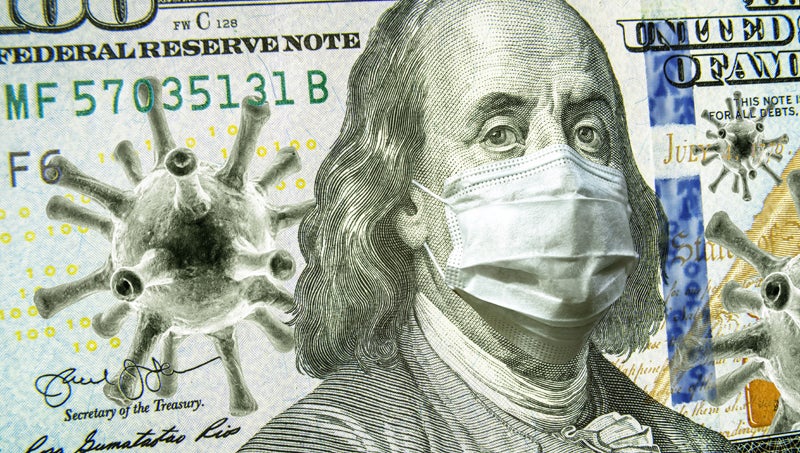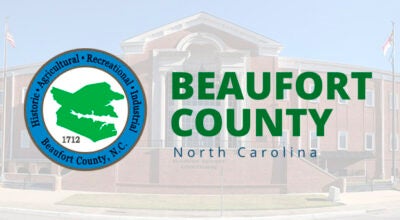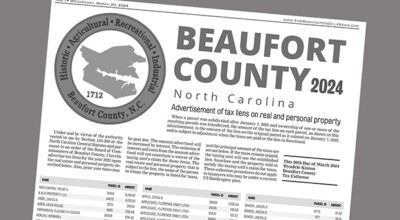County to share CARES Act funds with towns
Published 7:32 pm Friday, May 29, 2020
|
Getting your Trinity Audio player ready...
|
Beaufort County’s share of the federal CARES Act funding for the state of North Carolina is $1,014,608, which the county will be sharing.
“The bill allows us to share those funds with municipalities, as well for their operations, and we’re planning on doing that,” said Beaufort County Manager Brian Alligood.
In total, $4.07 billion was allocated to North Carolina, with the state’s four largest local governments, with populations greater than 500,000, receiving $481 million; $150 million is being distributed to county governments based on population estimated by the 2019 Vintage Year Census Bureau, according to a letter from State Budget Director Charles Perusse.
“Everyone is working hard to make ends meet, including county governments as they finalize their budgets. These funds will help communities respond to the COVID-19 crisis with testing, personal protective equipment and more,” Gov. Roy Cooper stated in a press release this week.
Following the state’s lead, Alligood said the county also will distribute the money by census population estimates. The base allocation of $250,000 and an additional $549,530 will remain with the county, as 71.87% of Beaufort County’s 46,994 residents live in the unincorporated county. The Town of Aurora, with 1.09% of the population, will receive $8,298; Town of Bath, with .51%, will receive $3,921; Town of Belhaven, with 3.36% of the population, will receive $25,691; Town of Chocowinity, 1.68%, will receive $12,821; Town of Pantego, .37%, will receive $2,864; City of Washington, at 20.21%, will receive $154,519; and the Town of Washington Park, .91%, will receive $6,964.
The funds can only be used for expenses directly made to address the COVID-19 pandemic, in the following broad categories:
- Medical expenses including the COVID-19 related expenses of public hospitals and clinics, establishment of temporary medical facilities, COVID-19 testing and public telemedicine capabilities.
- Public health expenses such as the acquisition of personal protective equipment and other medical supplies, disinfection of public areas and other facilities such as nursing homes and expenses for public safety measures, including expenses for quarantining.
- Payroll expenses for public safety or healthcare employees whose services are substantially dedicated to responding to the COVID-19 emergency.
- Expenses of actions that facilitate compliance with COVID-19 related public health measures such as teleworking, distance learning, food delivery paid sick and family and medical leave for public employees, expenses for maintaining prisons and expenses for protecting the homeless population.
- Expenses associated with the provision of economic support in connection with the COVID-19 public health emergency.
Alligood said the county planned to keep its use of the funding simple.
“What we plan to do with the money is the guidelines allows us to pay salaries for the health department and public safety employees in response to the pandemic, and we plan to do that because it’s a really clean disbursement,” he said.
Alligood said other expenditures, such as overtime for EMS and health department employees, some of which has been incurred through trips to pick up PPE and other supplies, as well as traveling to Raleigh to pick up COVID-19 test kits, will be submitted to FEMA for reimbursement.
“That way we can maximize the use of federal dollars that have been allocated for use in this emergency,” Alligood said. “The municipalities have that ability, as well.”
Since the county is responsible to the state for making sure the funds are spent appropriately, funds will be provided to municipalities on a reimbursement basis.
“Municipalities can go to the (NC Pandemic Response Office) website and see what they can spend it on,” Alligood said. “That way, we keep everybody from having something get clawed back by the state.”





